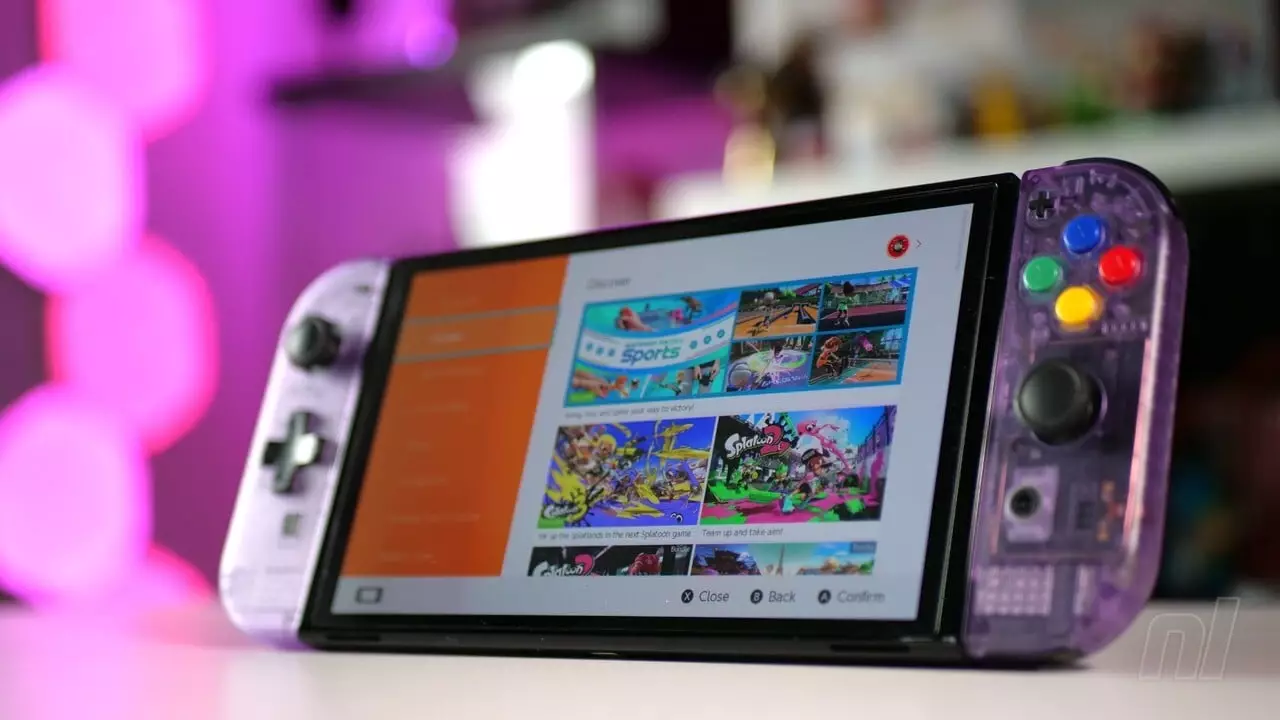The Nintendo Switch eShop has become a topic of intense discussion in recent years, particularly as we navigate the technological landscape of 2025. For players, the perception of the eShop is one marred by sluggishness, clutter, and an overwhelming number of low-quality titles that seem to dominate the marketplace. However, an equally pertinent question arises from the developer’s perspective: what challenges do they face when trying to navigate and succeed within this flawed digital storefront? This article delves into the complexities of the eShop from a developer’s viewpoint, shedding light on industry frustrations and proposed solutions.
One of the most pressing issues surrounding the Nintendo Switch eShop is the apparent lack of stringent quality control. Anecdotes from developers reveal a troubling trend where once a game receives approval, the doors are wide open for the creation of subpar games that manipulate the system. This lax oversight can foster an environment ripe for exploitation, with developers able to release titles that bear little resemblance to their descriptions. The phenomenon underscores a critical flaw in how the eShop manages its catalog, leading to feelings of disenfranchisement among serious game creators.
As a developer notes in discussions highlighted by various gaming outlets, “getting in the door is half the battle.” The notion that developers can simply ask for forgiveness after launching a misleading title emerges as a significant point of contention. This environment is not just detrimental to the consumer experience but casts a long shadow over the reputations of earnest developers striving to deliver quality games. The evident disparity in treatment between successful and struggling titles undermines the efforts of those who prioritize integrity and creativity.
The repercussions for developers who engage in dubious practices—though sometimes severe—often fall short of comprehensive accountability. Reports suggest that the punishments meted out for violating the eShop’s standards are sometimes no more than a formal reprimand, leaving plenty of room for fraudulent behavior to persist with minimal risk. This laxity in enforcement not only affects consumer trust but also leads to an unhealthy competitive landscape where only the most cunning developers thrive.
Conversely, developers have expressed frustrations regarding the arbitrary rejections they face when submitting their games. Cases abound where submissions receive little to no rationale for their rejection, creating uncertainty and hindered progress for studios eager to share their creations with the world. It seems the eShop operates on a flawed system where poor-quality games slip through the cracks, while genuinely innovative projects are often sidelined without adequate explanation.
Despite the disheartening state of the eShop, there remains a flicker of optimism among developers. Conversations within the gaming development community hint at a shared hope for improvements ahead, particularly as the Switch 2 is eyed as a potential upgrade to the current system. Many developers advocate for a more structured approach to catalog management, one that prioritizes user experience, quality assurance, and better communication from platform holders regarding game submissions.
In addition to efforts from Nintendo, external solutions are beginning to emerge. Notably, alternatives such as the “Better eShop” have been introduced, aiming to enhance the user experience by offering improved game categorization and more effective filtering. These developments signal a community-driven initiative to combat the issues plaguing the current storefront, and they provide a potential bridge between developers and consumers.
The Nintendo Switch eShop, as it stands in 2025, is fraught with challenges both for consumers and developers. The frustrations stemming from minimal oversight, lackluster accountability, and erratic game approvals paint a picture of a marketplace in dire need of reform. The testimony from developers echoes a unified call for change—a change that must prioritize the integrity of the gaming experience, ensure fair competition, and ultimately foster an environment where quality games can flourish. As the industry looks ahead, the hope for a future that emphasizes excellence and accountability in the eShop remains a vital conversation yet to be fully realized.

